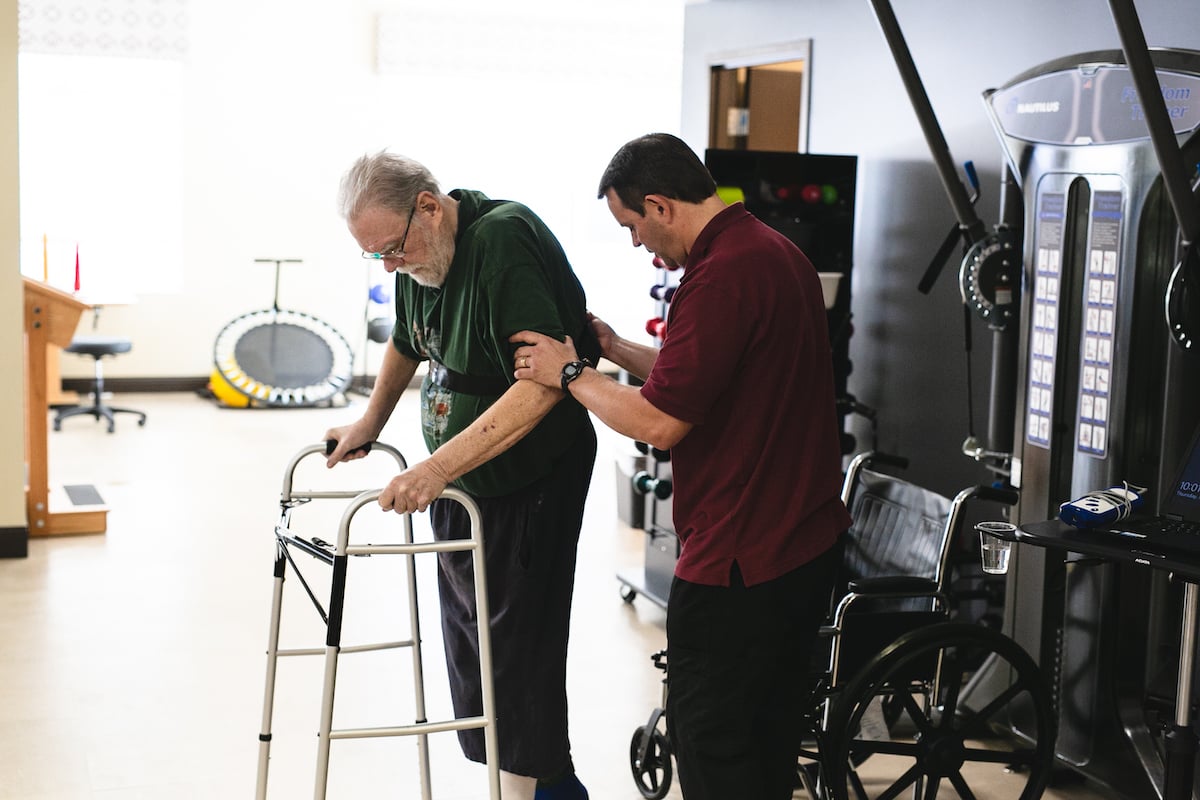
Find the Right Post-Hospitalization Care
Published by Vivage on
Mar 1, 2024 8:00:00 AM
When it comes to recovery after a hospital stay, the journey does not end at discharge. Having the right support in place is crucial to ensure a smooth transition and continued healing. The right care can make all the difference in terms of recovery and well-being, but how do you choose the best option for yourself or someone you love?
Offering post-hospitalization care services throughout our senior rehabilitation communities, our team at Vivage Beecan is dedicated to providing the Right Care in the Right Place at the Right Time.
We are exploring the key aspects to consider when selecting post-hospitalization care, from understanding the different types of care available to questions to ask potential care providers, empowering you to make an informed decision.
Types of Care Available
- Rehabilitation provides specialized therapy and support services to help individuals regain independence and functionality.
- Skilled Nursing Care offers around-the-clock medical care and assistance for individuals who require more intensive care or have complex medical needs.
Questions to Ask Senior Rehabilitation Communities
Caregiver Qualifications and Training
Inquire about the qualifications and experience of the team members who will be providing care. Caregivers can greatly contribute to the success of post-hospitalization care, providing invaluable support, helping with medication management, assisting with daily activities, and offering companionship.
When choosing a post-hospitalization care provider, ensure they have qualified and compassionate caregivers who are trained to meet your or your family member’s specific needs.
Care Plans and Individualized Approach
A well-designed care plan serves as a roadmap for the recovery journey. It involves coordinating various healthcare services and tailoring them to your or your family member’s unique situation. A comprehensive care plan ensures that you receive the appropriate medical attention, rehabilitation, and follow-up care to aid your recovery and prevent any complications.
Ensure that the community you choose offers personalized care plans tailored to meet your specific needs and goals.
Safety Protocols and Emergency Response
Ask about safety measures and emergency response protocols that potential senior rehabilitation communities have in place to ensure your or your family member’s well-being.
Availability of Specialized Services
If you or your family member requires specialized care, such as dementia care or physical therapy, confirm that the community offers these specialized services and can accommodate these needs.
Nutritional Considerations
Proper nutrition plays a vital role in the healing process. When selecting post-hospitalization care, it is important to look for a community that prioritizes nutrition. Consider dietary restrictions and preferences, and ensure the care plan includes well-balanced meals and snacks that meet your specific nutritional needs.
Emotional Support
Physical recovery is just one part of the healing process. Emotional well-being is equally important and should not be overlooked. Look for senior rehabilitation communities that prioritize emotional support, offering access to socialization opportunities, community amenities and programs, or other resources that can help address any potential emotional challenges during the recovery period.
Financial Considerations
Post-hospitalization care can come with financial implications. It is essential to understand the cost of different care options and the extent of insurance coverage or reimbursement available to you. Consider your budget and explore various payment options to ensure you can access the care you need. A few items to keep in mind include:
- Coverage Options and Limitations: Understand what types of care are covered by your insurance and any limitations or restrictions that may apply.
- Out-of-Pocket Costs and Financial Assistance Programs: Clarify the out-of-pocket costs associated with post-hospitalization care and inquire about any financial assistance programs that may be available.
- Billing and Payment Process: Familiarize yourself with the billing and payment procedures at the community to avoid any surprises down the road.
Transitioning from Hospital to Care Community
- Coordination with Hospital Discharge Planners: Work closely with the hospital's discharge planners to ensure a smooth transition and effective communication between the hospital and the care community.
- Transportation Arrangements: Arrange for reliable transportation to ensure a safe transition from the hospital to the chosen community.
- Communication and Information Sharing: Provide the care community with all relevant medical history, including medications, allergies, and any specific care instructions. This enables them to create a customized care plan to further aid the recovery journey.
Choosing the right post-hospitalization care is a critical decision that can greatly impact your recovery journey. Prioritize your or your family member’s well-being and comfort, and take the time to research and make an informed decision. Remember, the goal is to provide the support and environment necessary for a successful recovery.
Learn more about our senior rehabilitation communities and the post-hospitalization care we provide at Vivage Beecan by visiting our website or contacting a member of our team.